
Amira Abbas
Researcher,
IBM Research-Zurich
See biography
Amira Abbas is a researcher at IBM Quantum and a PhD fellow at the University of KwaZulu-Natal, South Africa. Her current research focuses on the intersection of quantum mechanics and machine learning theory in order to solve problems that are not possible to compute classically. Amira holds an undergraduate degree in actuarial science, an honours degree in quantitative finance and a masters degree in physics. She is currently pursuing her PhD in quantum computing and is an active member of numerous community driven initiatives centered around strengthening science and technology.

Oliver Ambacher
Director,
Fraunhofer Institute for Applied Solid State Physics IAF
See biography
Professor at the Albert-Ludwigs-Universität Freiburg, Chair of Power Electronics of the Institute for Sustainable Technical Systems, and head of the Fraunhofer Institute for Applied Solid State Physics IAF. Prof. Dr. O. Ambacher researches and develops innovative hardware for quantum computers and quantum sensors as well as high frequency circuits for cryogenic applications based on III-V semiconductors and diamond. Fraunhofer IAF is coordinator of the competence center for quantum computing in Baden-Württemberg.
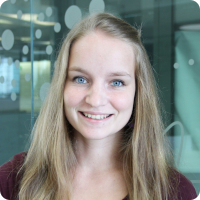
Elisa Baumer
Intern/ PhD,
IBM Research-Zurich/ ETH Zurich
See biography
Elisa studied Physics at ETH Zurich and is currently pursuing her PhD in the quantum information theory group of Prof. Renato Renner, also at ETH Zürich, where she is mostly working on quantum thermodynamics, quantum non-locality and quantum computing. For the past two years she has been also working part-time for IBM in the quantum community team, where she was helping out with educational material and outreach activities, such as developing the IBM Quantum Challenge and teaching more than 4000 students at the Qiskit Global Summer School.

Félix Bussières
VP Technology & Innovation,
ID Quantique
See biography
Félix and his team are responsible for the development of IDQ’s core technologies and for key innovative projects.
Félix obtained his PhD in Physics from the Université de Montréal. He then worked as a senior researcher at the University of Geneva, where he conducted research in quantum technologies. In particular, he played a key role in developing high-performance superconducting detectors. After joining IDQ in 2016, he took the superconducting detector technology from a prototype to a successful product line for research laboratories, as well as a partnership with ArianeGroup to develop cutting-edge equipment dedicated to the upcoming Ariane6 commercial space launcher. He now leads several innovation activities related to the development of single-photon detectors, quantum random number generators and quantum key distribution.

Philip Broser
Leiter Neurophysiologische Diagnostik,
Stiftung Ostschweizer Kinderspital- KER-Zentrum
See biography
Dr. Philip J. Broser received a diploma in Mathematics in 2003 and his medical doctor (MD) in 2006 both from the University of Heidelberg. He received the Ph.D degree working in the Department of Cell Physiology (Laboratory of Prof. Sakmann) at the Max Planck Institute for medical research in Heidelberg. He developed new techniques for quantitative neurobiology and studied early postnatal brain plasticity. He trained as a pediatrician in London and worked at the Institute of child health. He used advanced diffusion MR techniques to analyze non-invasively the substructures of the Thalamus in children. After completing his neuropediatric subspeciality training at the Children`s University Hospital in Tübingen he was appointed Consultant neuropediatrician at the Children`s Hospital of Eastern Switzerland in Sankt Gallen. He is now heading the unit for clinical neurophysiology and has set up the research laboratory for pediatric clinical neurophysiology. His main clinical interests are peripheral neurology, neuromuscular disease and pediatric epileptology. He has introduced high resolution nerve ultrasound imaging into the pediatric neurophysiological routine and research in Switzerland. The research of his laboratory focuses on developing new techniques for pediatric neurophysiology and the analysis of the maturation of the peripheral nervous systems. In 2015 he published the first study using optically pumped magnetometers to analyse the propagating muscular action potential in humans. Since then, his laboratory together with collaborators has performed key experiments to pave the way for the introduction of magnetomyography into the clinical routine. He believes that magneto myography has the potential to reshape our thinking of clinical neurophysiology. In addition, Dr. Broser is an active teacher for pediatric neurology at the University of Basel and the newly founded Joint Medical Master at the University of Sankt Gallen.
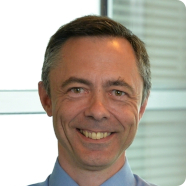
Simon Bryden
Manager Consulting Systems Engineering,
Fortinet
See biography
Simon Bryden is a consulting systems engineer at Fortinet, working in the Telco team and specialising in the security of IoT and Mobile Private Networks. Simon brings a wealth of experience from over 30 years in the networking and security industry and before joining Fortinet, held engineering and product management positions in a variety of vendor, integrator and end user companies.

Martin Felle
Product manager,
IDQ/Uni Geneva
See biography
Martin Felle is a technology professional with diverse expertise in Quantum Technology, information security and business consulting. Beginning his career as a PhD researcher with the Toshiba Research Labs at the University of Cambridge, working on applications for cutting-edge quantum communication technologies, he went on to work as a cyber risk consultant with Deloitte Switzerland, delivering impactful information security projects for NGOs, FSIs, and manufacturing firms.
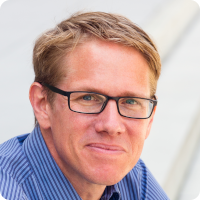
Stefan Filipp
Professor,
Technical University of Munich
See biography
Stefan Filipp has been appointed Professor in Technical Physics at the TU Munich and Director of the Walther-Meissner-Institute of the Bavarian Academy of Sciences and Humanities in 2020. Before he has led the superconducting qubit team at the IBM Research – Zurich Laboratory to develop architectures for quantum computing based on superconducting circuits. He has joined IBM in 2014 as permanent research staff member of the experimental quantum computing team at IBM T.J. Watson Research lab in Yorktown Heights, NY, US. His degree in physics he has received from the Vienna University of Technology, Austria, and the Uppsala University, Sweden for his studies on quantum geometric phases effects, for which he was awarded the Victor-Hess Award. He then worked as Postdoc and later Senior Researcher on quantum computing, quantum simulation and quantum optics with superconducting circuits at the ETH Zurich. In 2020 he has been nominated as co-chair of the 'Quantencomputing' expert panel of the German Chancellery and he is currently leading a collaborative research project on building a German quantum computer based on superconducting qubits.

Axel Foery
EVP Quantum Safe Security,
ID Quantique
See biography
Axel Foery joined ID Quantique as Executive VP Quantum-Safe Security in February 2020 bringing a deep experience in the IT, telecommunications and security fields. He started his career in the telecommunications market working for Deutsche Telekom, Nokia and later Cisco where he built the IP Infrastructure we everyday use. During 16 years at Cisco, he successfully held leadership roles throughout Europe and was responsible for the launch of new technologies and go-to-market approaches for major global markets and verticals.
After working at Cisco, Axel became the CEO of Keymile, a Swiss and German network infrastructure vendor, serving the Energy, Railway, Authority and Carrier markets. Later, he moved into the Utility market to build the Global B2B Solution Business GTM for E.ON, a major European Utility company. Before joining ID Quantique, Axel was a strategic technology advisor in different Private Equity investments.

Moritz Fontboté Schimdt
Student,
ETH Zurich
See biography
Moritz is a student in the MSc QE Programme at ETH Zürich. There, he co-founded the Quantum Engineering Commission, launched the Quantum Paper Club and is currently doing an internship at IQM in Finland.
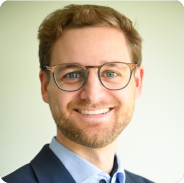
Michael Geiselmann
Managing Director,
LIGENTEC SA
See biography
Dr. Michael Geiselmann (managing director) joined after his PhD at ICFO the laboratory of Prof. Kippenberg at EPFL in Lausanne, where he advanced frequency comb generation on integrated silicon nitride chips towards applications and was involved in several international research projects. In 2016, he co-founded LIGENTEC and brought the company to the international stage of photonic integration. He is responsible for sales and business development.

Katja Glas
Director Innovation Funnel,
Rohde & Schwarz
See biography
With a background in management and electrical engineering. Katja Glas currently heads the department of Corporate Innovation Management at Rohde & Schwarz, where her dynamic team partners internal Innovators to push forward various projects in order to expand business opportunities. In these Innovation assessments, new technologies are often central to the project, and a common thread of discussion are the technologies that are not only ripe for industry transfer but relevant for product development. This requires close cooperation and partnership with universities. Beyond this, her team continues to ensure the right structure and support systems within Rohde & Schwarz so as to foster a vibrant innovation culture.

Bruno Gonçalves
Cybersecurity Business Unit Manager,
Warpcom
See biography
Bruno Gonçalves is currently the Cybersecurity Business Unit Manager at Warpcom Services with more than 10 years of experience in Networking and Cybersecurity Projects, as well as in Operation’s Services focused in addressing the daily security business needs of customers across the different market segments such as financial, manufacturing, healthcare and public sector. Responsible for developing, coordinating and maintaining the policies, the processes and operational activities of the Information Security System (ISO27001:2013 certified). Received his MSc degree in Communication Networks Engineering at Instituto Superior Técnico – Technical University of Lisbon (IST-TUL) in 2010 and made a Post-graduation in Mastering Enterprise Engineering for Digital Transformation at IST-TUL in 2019.
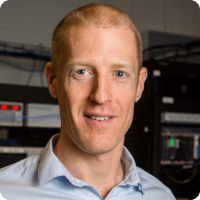
Simon Gustavsson
Principal Research Scientist, Quantum R&D Manager,
EQuS MIT, Keysight Technologies
See biography
Simon Gustavsson is an expert in the field of experimental quantum computing with 18+ years of experience in the area of applied condensed-matter physics and quantum information with both spin and superconducting qubits. He received his Ph.D. from ETH Zurich in 2008, which was awarded with both the Dimitri N. Chorafas research award, for best Ph.D. thesis at ETH Zurich, and the Swiss Physical Society award, for best Ph.D. thesis in Condensed Matter Physics. Simon Gustavsson completed his postdoctoral research at MIT in 2012, where he has continued as a principal investigator with the Engineering Quantum Systems (EQuS) group.
Simon is the creator, founder and former CEO of Labber, a company developing software for control and automation of quantum computing experiments. The company was acquired by Keysight Technologies in late 2019. Since then, Simon has established a quantum R&D center in Cambridge, MA, leading the development of quantum control software at Keysight.

Jacques Haesler
Lead of Space Activity,
CSEM SA
See biography
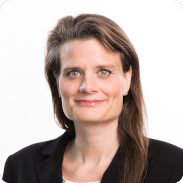
Martina Hirayama
State Secretary, State Secretariat for Education
Research and Innovation at Federal Department of Economic Affairs, Education and Research
See biography
Martina Hirayama is Head of the Swiss State Secretariat for Education, Research and Innovation at Federal Department of Economic Affairs, Education and Research. She did a doctorate in technical sciences and a postgraduate in Business Economics at the ETH Zurich. She was head of the Polymer Chemistry Group at the ETH Zurich’s Department of Materials and was co-founder and CEO of a start-up in new coating technologies. She developed the ZHAW’s Institute of Materials and Process Engineering. She was president of the board of the Federal Institute of Metrology METAS, vice president of the Innovation Promotion Agency Innosuisse board and a member of the Swiss National Science Foundation board.
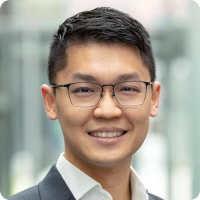
Melvyn Ho
Program Manager
Rohde & Schwarz
See biography
Melvyn Ho first began his quantum journey in the Centre for Quantum Technologies in Singapore, and completed his PhD in the University of Basel in the group of Nicolas Sangouard, before pursuing a postdoctoral tour in the University of Geneva. Thereafter, he found an industry position with Rohde & Schwarz in 2019 as Project Leader in Technology Planning and University Partnerships, and began his first exposure to the company via various special projects. He now continues his quantum journey as a Program Manager in the Corporate Innovation Management department, where he focuses on Quantum Technologies that are relevant for the company, including a current collaboration with Prof Treutlein in Uni Basel.

Jonathan Home
Professor,
PSI, ETHZ
See biography
Jonathan Home leads the trapped-ion quantum information group at ETH Zürich, as well as being a scientific director of the ETH/PSI Quantum Computing Hub. His research is focussed on the control and manipulation of the quantum states of atomic ions for scaling up trapped-ion quantum computation. Jonathan has received a number of awards for his work, including the Landaer-Bennett award of the APS, the ETH Zürich Latsis prize, and a TED Fellowship.
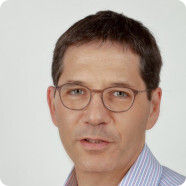
Bruno Huttner
Director of Strategic Quantum Initiatives,
ID Quantique SA
See biography
Bruno Huttner is the Director of Strategic Quantum Initiatives, and a Quantum Key Distribution Expert at ID Quantique. He is also the co- chairman of the Quantum-Safe Security Working Group (QSS WG) organized by the Cloud Security Alliance.

John D. Jost
Director
MicroR Systems Sarl
See biography
MicroR systems is being spun off by Dr. John D. Jost, from the group of Prof. Tobias J. Kippenberg at EPFL. Dr. Jost has over 17 years of research experience where 9 of those years were spent working with Dr. Dave Wineland in the time and frequency division of the National Institute of Standards and Technology in Boulder, CO USA, and prior to that experience working on frequency combs with Prof. Jun Ye and Dr. John Hall at JILA in Boulder, CO USA. In addition, for the past 3.5 years he worked in the group of Prof. Tobias J. Kippenberg at EPFL where he focused his efforts on the technology of crystalline optical microresonators, created the first self-referenced micro-resonator optical frequency comb and developed a new all optical stabilization technique for crystalline microresonators.

Sylvain Karlen
Senior Project Manager,
CSEM
See biography
Sylvain Karlen received a master's degree in Applied Physics from the EPFL in Lausanne, Switzerland, in 2014 and a PhD degree in physics from the University of Neuchâtel in 2017 on the subject of atomic vapor cells for chip-scale atomic clocks and other atomic devices. During his PhD studies, he accomplished his research at the Swiss Center for Electronics and Microtechnology (CSEM) in Neuchâtel, Switzerland, and spent 3 months at the European Space Research and Technology Center (ESTEC) in Noordwijk, the Netherlands. In 2018, he visited the National Institue of Standards and Technology (NIST) in Boulder, Colorado as a guest scientist working on mid-infrared frequency combs and their applications. He is currently working at CSEM as Senior R&D Engineer and is involved in several projects on atomic sensors and atomic clocks.

Francesco Kienzle
Advisor,
Euresearch
See biography
Francesco is the Swiss National Contact Point at Euresearch for the part Digital in the EU programme Horizon Europe. That programme is funding the European Flagship programme on quantum technologies.

Moritz Kirste
Application Scientist,
Zurich Instruments
See biography
Moritz Kirste is an Application Scientist at Zurich Instruments and is in charge of collaboration projects. As an experimental physicist, he focused on the physical and chemical processes of molecules in the gas phase. Moritz worked as a scientific consultant and data science team lead specializing in digitalization and AI, and is a university lecturer. At Zurich Instruments, he enjoys the close contact with customers, partners, and their challenging scientific applications.
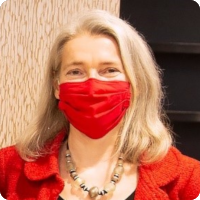
Laure Le Bars
Research project Director,
SAP
See biography
Laure Le Bars is a Research Project Director at SAP Technology & Innovation. She coordinates a Quantum Computing @SAP initiative. She is president of the newly founded association European Quantum Industry Consortium (QuIC). She is also co-lead of the Quantum Computing Industry Group (DACH). She is working on several projects like Big Data Value Association www.bdva.eu (Board of Directors and Vice-President; BDV PPP CSA project manager), and Smart Data Innovation Lab (www.sdil.de deputy coordinator until 2016), EIT Digital (principal of staff, office of the CEO; SAP project coordinator) or Academy Cube. She is also involved in the French-German cooperation on Digital Economy. Laure Le Bars holds degrees in Mathematics, Computer Science and Economics from the École Nationale Supérieure d'Informatique pour l’Industrie et l'Entreprise, Groupe Centrale, Conservatoire National des Arts et Métiers, in France. Her thesis dealt with Operation Research for Artificial Intelligence at GERAD (Groupe d'Études et de Recherche en Analyse des Décisions) in Montréal, Canada.

Sabrina Maniscalco
Professor, CEO,
University of Helsinki
See biography
Professor Sabrina Maniscalco is the Professor of Quantum Information, Computing and Logic at the University of Helsinki, Finland, and CEO and co-founder of Algorithmiq Ltd (www.algorithmiq.fi).
She is also an adjunct professor at Aalto University (Helsinki), the vice Director of the Finnish Centre of Excellence for Quantum technologies (www.qtf.fi), and the vice Director for Education of InstituteQ (www.instituteq.fi).
Prof. Maniscalco works on the understanding of limitations and possibilities of realistic quantum technologies, specifically focussing on the effect of noise on quantum-enhanced devices. More recently she has started to investigate complex quantum networks with the aim of understanding the interplay between quantum advantage and network topology. Finally, she is the co-creator of the online platform QPlayLearn for education, outreach and training on quantum science and technology.

Eduardo Miranda
Professor,
University of Plymouth
See biography
Eduardo R. Miranda is a composer and Artificial Intelligence scientist. He is a Professor in Computer Music at the University of Plymouth, UK, where he is director of the Interdisciplinary Centre for Computer Music Research. Before joining the University of Plymouth, he was a research scientist at Sony Computer Science Laboratory Paris, developing evolutionary computing models of natural language and Artificial Life. Currently, Eduardo and his team are pioneering research into quantum computing applied to musical creativity, thanks to a research grant from UK's QCS Hub. His book 'Handbook on Artificial Intelligence for Music' has recently been published by Springer.

Matthieu Munsch
CEO,
Qnami
See biography
Mathieu Munsch is a cofounder and the CEO of Qnami. He holds an engineering degree from the ENS Grenoble INP and a PhD from the University Grenoble Alpes. He worked as a scientist for the CEA and the University of Basel, where he was develop new sources of quantum light and lasers. He is the author of > 15 publications in high profile papers such as Nature and the Physical Review. In 2017, Mathieu created Qnami, with the ambition to become a leader in the quantum sensor market. Mathieu is actively involved in the European Quantum Flagship program and creation of a European quantum ecosystem.

Alexandre Pauchard
CEO,
CSEM SA
See biography
Alexandre Pauchard is CEO at CSEM, a leading Swiss Research & Technology Organization. Before that he worked as CTO and Head of Group R&D at BOBST, the world’s leading suppliers of equipment and services for the packaging industry. Prior to joining Bobst in 2011 he held various management positions in startups and SMEs, acting as CTO at Synova SA, VP of Engineering at ID Quantique and Director of Engineering at Nova Crystals in Silicon Valley. During 6 years he also consulted Intel’s Photonics Technology Lab in Santa Clara.
Alexandre Pauchard graduated in Physics from ETH Zurich and received a Ph.D. in Microengineering from EPFL. He has published over 80 peer-reviewed journal and conference papers, has been awarded 13 patents and was the recipient of the "INDUSTRY 4.0 - THE SHAPERS 2019" Award.

Lauri Parkkonen
Professor,
University of Aalto/Megin Oy
See biography
The main research area of Parkkonen is non-invasive neuroimaging, mainly instrumentation and data analysis methods related to MEG as well as human neuroscience of sensory modalities and cognition. He has contributed to MEG instrumentation and signal processing methods that are currently in active use in over 100 laboratories world-wide. Currently he pursues the use of optically-pumped magnetometers for MEG, exploits real-time feedback of measurements of brain activity to study cognition and plasticity, both for basic neuroscientific research and for clinical applications. He is also coordinating a national consortium to develop a biobank for functional brain-imaging data. Parkkonen has also contributed to ultra-low-field MRI research and to invasive monitoring of local cortical activity. In cognitive neuroscience, Parkkonen has shed light on the neural mechanisms of sensory processing, particularly conscious visual perception. Recently he has pioneered the emerging field of social neuroscience to uncover brain mechanisms supporting social interaction by using hyperscanning i.e. simultaneous recording of the brain activity of the interacting participants.

Marcel Pfaffhauser
Intern,
IBM Research-Zurich/ Uni Lugano
See biography
Marcel studied computer science at ETH Zurich, with specialization in theory of computing. Afterwards he worked as a teaching and research assistant at the University Svizzera italiana in Lugano in the field of Quantum Information Theory. He then left research to work as a Unity Developer for 5 years, where he was focused on AR VR and Gamification. Last Year he joined IBM Research in Zurich to work in the Quantum Education Team.

Gabriel Puebla-Hellmann
CEO,
QZabre Ltd.
See biography
Dr. Puebla carried out his PhD in the Quantum Device Lab and post-doctoral research, both at ETH Zürich. He continued his post-doctoral research at University of Basel where he was awarded a National Center of Competence and Research (NCCR) in Quantum Systems and Information Technology. Dr. Puebla furthered his post-doctoral research at IBM Zürich where he worked on a project creating a mass-fabrication compatible platform for molecular electronics as well as collaborated with a biochemistry group, by providing a microfluidic device to create and manipulate small water droplets in oil. In addition, he spent several years working part-time during his studies at Axiphos GmbH, an instrumentation start-up, where he wrote the Polaris White Star software as well as managing customer support. Overall, with 12 years of experience in both developing experimental setups and micro-/nanofabrication. Dr. Puebla has published several articles and was granted three patents.

Grégoire Ribordy
CEO and co-founder,
ID Quantique
See biography
Dr. Gregoire Ribordy, co-founder and CEO, has 20 years of experience in various R&D and management roles in the field of optical measurements and communication systems. He founded ID Quantique in 2001 and has managed the company since then. Prior to this, he was a research fellow at the Group of Applied Physics of the University of Geneva between 1997 and 2001. In this position, he actively developed quantum cryptography technology and is the holder of a number of patents in the field. Between 1995 and 1996, Dr. Ribordy worked in the R&D division of Nikon Corp. in Tokyo.
Dr. Ribordy is the recipient of several awards such as the 2001 New Entrepreneurs in Technology and Science prize, the 2002 de Vigier award and the Swiss Society for Optics and Microscopy 1999 prize. At the end of 2005, he was selected as one of the most innovative individuals in information technology worldwide by the World Technology Network. Dr. Ribordy, with the other co-founders of IDQ, were awarded the Medal of Innovation in 2017 and the Impact Award in 2019 by the University of Geneva.

Janine Riedrich-Moeller
Scientist of Quantum Technologies,
Robert Bosch GmbH
See biography
Dr. Janine Riedrich-Moeller received her franco-german Master degree in physics from the Saarland University, Germany and the Université de Henri-Poincaré in Nancy, France. During her PhD studies in the quantum optics group at the Saarland University, she was working on the development of cavity-enhanced single photon sources, diamond photonics and laser spectroscopy. In 2015, Janine joined the corporate research division of the Robert Bosch GmbH in Renningen, Germany. In the field of microsystems and quantum technology, she works on the development of quantum sensors for automotive and consumer applications. Her research focuses on the realization of miniaturized atomic gyroscopes.

Adriaan Rol
Director R&D,
OrangeQS
See biography
During his PhD (cum laude) in the group of Prof. DiCarlo, Adriaan worked on control for superconducting quantum systems. He has developed new calibration and characterization protocols, as well as a new type of two-qubit gate, and made key contributions to the development of Quantum Infinity, a transmon-based full-stack quantum computer that preceded QuTech’s Quantum Inspire platform. Adriaan has worked closely with experts from all layers of the stack, which was formally recognized through the Zurich Instruments Pioneer Award, and resulted in award-winning papers. Before starting his PhD, Adriaan was on the executive board of a non-profit business consultancy.

Tom Stengel
Senior Director of Business Development,
ID Quantique
See biography
Tom Stengel is the Senior Director of Business Development globally for IDQ QRNG products for quantum enhanced security. Making existing security more secure from consumer and edge products like mobile phones, IoT devices, computing, automotive; to core products in data centers and telecommunications. Tom’s background is in R&D, marketing and sales of semiconductor processors, AI, and quantum technology.
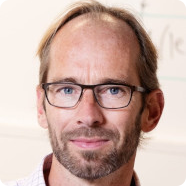
Wolfgang Tittel
Professor,
QuTech/Kavli/EEMCS, TU Delft The Netherlands
See biography
Wolfgang Tittel is an experimental physicist. He received his PhD from the University of Geneva in 2000 for “Quantum correlation for quantum communication”, joined the University of Calgary in 2006 as Associate Professor and Industrial Research Chair, and was promoted to Full Professor in 2013. Since 2018, he is a Professor at the EEMCS Department at the TU Delft, and a staff member at QuTech.
Dr. Tittel’s research was seminal in bringing quantum communication technology out of the laboratory and into the real world using deployed telecommunication fiber. His work has raised, and continues to raise, both scientific and public awareness and appreciation that the new technology is not restricted to contrived laboratory settings. Notable research results include the first demonstration of measurement-device independent quantum key distribution, which is of particular interest due to its resilience to quantum hacking, its suitability for building networks, and its upgradability to quantum repeater-based communication links; city-wide quantum teleportation; and the storage and recall of members of entangled photon pairs using rare-earth-ion based quantum memory.
Dr. Tittel’s work has been cited more than 23,000 times. He is a founding member of QCRYPT, the international quantum cryptography conference, and has been a member of steering, executive and program committees of various institutes and for various conferences.

Olivier Tonneau
Partner,
Quantonation
See biography
Olivier Tonneau is a founder and Partner at Quantonation. He is a board member at several quantum startups: Qnami, Kets and CryptoNext Security.

Anja Ulrich
Student,
ETH Zurich
See biography
Anja studied Electrical Engineering for my bachelor degree at ETH Zürich. After, she switched to the interdisciplinary Quantum Engineering master program. She is board member of the Quantum Engineering Commission and in the process to found the Quantum Engineering alumni association. Right now she is doing an internship at IMEC in Belgium.

Carl Williams
Acting Director,
Physical Measurement Laboratory NIST
See biography
Acting Director of the Physical Measurement Laboratory (PML) of the National Institute of Standards and Technology (NIST); Fellow of the Joint Quantum Institute (JQI) and the Joint Center for Quantum Information in Computer Science (QuICS); Leads the NIST Quantum Information Program; Co-Chairs the Quantum Information Science Subcommittee of the National Science and Technology Council; Physicist and author of over 100 scientific publications in ultra-cold atomic collisions, Bose-Einstein condensation, many-body physics, and quantum information science. Leader, policy maker, and member of the Senior Management Team of NIST. Speaker at numerous national and international conferences including lay audiences. Actively engaged in the international effort to redefine the international system of units or metric system. Acting Director of a laboratory with over 600 permanent staff scientists and engineers and more than 800 additional students, postdoctoral candidates, and affiliates.

James Wootton
Research Staff Member,
IBM Research-Zurich
See biography
Dr James Wootton is a Research Staff Member at IBM Research - Zurich. He is active in research, as well as in efforts to educate and support the quantum community. He did his PhD at the University of Leeds on quantum error correction and topologically ordered systems, before continuing in the same line of research as a postdoc at the University of Basel. There he created a citizen science project in 2016, which provided game-based way for the public to contribute to the science around quantum error correction. Since then he has continued to combine games with quantum computing, both as an educational tool and an application of quantum computing.

Dominik Zumbühl
Professor,
University of Basel
See biography
Dominik Zumbühl, born 1974 in Zürich, received a diploma in physics in 1998 from ETH Zürich. Subsequently, he worked on his doctorate at Stanford University and then, after relocating with the lab, at Harvard University with Prof. Charles Marcus, obtaining his PhD in 2004 with title «Coherence and Spin in GaAs Quantum Dots». He then joined the group of Prof. Marc Kastner at MIT as a postdoctoral fellow. In April 2006, Dominik was appointed as a tenure track assistant professor at the Department of Physics at the University of Basel. In 2008, he has received one of the prestigious Starting Grants of the European Research Council (ERC) in the first ERC call, where only 3% of proposals were funded. In April 2012, Dominik was awarded tenure and was promoted to associate professor. From 2015-2019, Dominik was serving as Chair of the Department. In February 2021, he took on the role of director of the NCCR SPIN.


